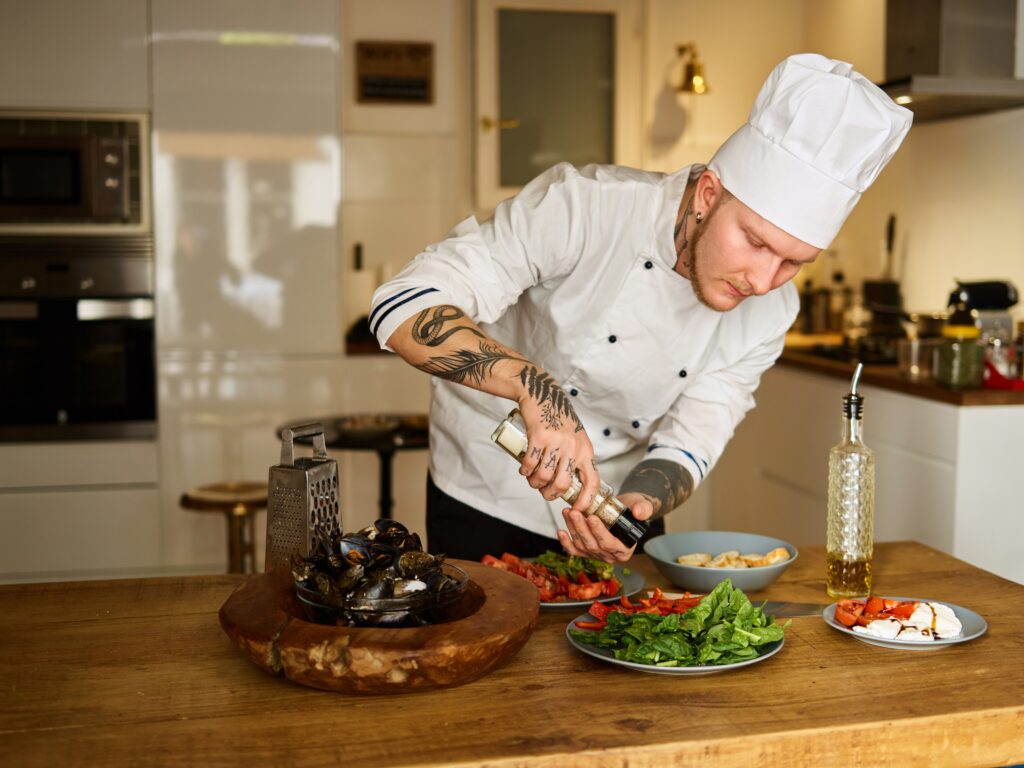
Diploma in Culinary Arts UK is said to be an exploration of new dimensions of food. It doesn’t only limit the edible aspect of food; it goes far beyond as a form of art.
One’s passion for food can create a path to excellent career opportunities in the culinary world. People considering a diploma in culinary arts are often asked: “Why bother going to culinary school? Can’t you just learn on the job?”
And truly, just like a writer doesn’t have to study journalism and an actor doesn’t have to take acting classes to achieve success, a career in the food industry doesn’t require formal culinary education.
However, by focusing on education for a few months or years, students tend to reap many benefits that even the “work your way up” doesn’t seem to offer. Also, completing a culinary diploma program helps graduate achieve their goals more quickly.
This article will take you through the values of culinary diplomas or degrees in the UK and why many students have considered a culinary school worth it.
- The culinary school experience
- Restaurants are committed to service; while schools are devoted to learning.
- Culinary graduates are differentiated from the crowd.
- Culinary school graduates are better equipped to keep up in the kitchen.
- Culinary schools allow students to start building a professional network.
- Culinary graduates can look forward to post-school support.
- Culinary students tend to be exposed to worldwide cuisines.
- An investment in your education may improve your employment prospects.
- Final thought
The culinary school experience
Many ignorant people would always say that culinary school is unnecessary as any cook can easily “learn on the job”.
I mean, I won’t even lie; certain lessons are best taught in a professional kitchen- like managing your time during dinner rush or working around other team members in a crowded line. However, there are some unique benefits that the classroom setting provides and can’t be replicated in a working kitchen.
Below are some advantages students tend to benefit from when taking the culinary school route.
The culinary school explains why not just how. For someone that wants to be creative in the kitchen, a person must understand why certain techniques provide the desired result.
Why do we add eggs to a cake? Why do savoury dishes benefit from a hint of acidity? And several other “why”.
Without an accolade for these foundational culinary principles, you may seem to find yourself unable to make alterations and substitutions, which hinders your future creativity.
So in culinary schools, chef instructors are employed to explain the science behind ingredients and techniques, which eventually become tools in your experimental toolbox. Culinary students are provided with a team of chef instructors.
Not all chefs approach each technique in the same way. When learning the “work your way up” method, you’re only taught one chef’s method, which is a restaurant; it seems to make sense. The executive chef relies on the entire team to carry out things their way to create a consistent guest experience.
However, this method tends to confine and potentially hinder your growth as a chef in your own right from a learning perspective.
Compared to when you learn the job such that the kitchen environment is limited in its number of possible educators and mentors, in culinary school, students have the opportunity to receive instruction from several passionate chef instructors who have worked in many types of roles and establishments.
The diversity and quality of educators alone can make culinary school worth it.

Restaurants are committed to service; while schools are devoted to learning.
A cook’s job in a professional kitchen is, for instance, to get those potatoes peeled and that hollandaise prepped for service, while the executive chef’s job is to get the food out the door to serve hungry customers. Having the restaurant kept profitable is the end goal.
As long as you’re able to complete the task assigned to you, your supervisors may not be changed or even have the incentive to help expand your culinary skills.
Even if you’ve got a great chef mentor, you will still need to finish up your tasks before you can focus on learning.
Meanwhile, a culinary student’s job, on the other hand, is such that everyone is working towards the same goal. So you’re able to learn as much as possible, and you’re also provided with the knowledge and tools needed to succeed in this career.
The school environment encourages students to ask questions, make mistakes and practise until they perfect without wasting a restaurant’s product or holding up service. Having to try new techniques is what school is all about.
Culinary graduates are differentiated from the crowd.
Regardless of your career, there are several skills to learn on the job as you work your way up from entry-level to advanced positions.
Hiring chefs, however, expect that new cooks may have quite a lot to learn, which means that they may require training, and this would take the hiring chef’s time, effort and resources.
So, let’s put ourselves in their shoes. You have two resumes with the same work experience. Each candidate has held a position in a professional kitchen as a prep cook, but one went to a culinary school, and the other didn’t. Which candidate seems more appealing? It’s just as simple as that.
The culinary school graduate tends to bring technical skills(those that have been built through education in theory and plenty of supervised practices) to their job such that the other aspirant might not be able to match.
These skills would often help the training process go smoothly, more quickly and potentially with little of the chef’s attention.
Generally, students who attend culinary school have the edge over those who don’t.
Culinary school graduates are better equipped to keep up in the kitchen.
Professional kitchens can be fast-paced and dangerous, with sharp knives and hot pans loitering around every corner. This can be a disorienting environment for new-entry staff with zero kitchen experience.
However, if you’re the type that has attended culinary school, you should be familiar with both the environment and terminologies in the kitchen.
All degree and diploma programs require students to complete their hands-on externship in a professional setting.
So Escoffier graduates also enjoy the benefits of their industry internships as this provides them with the chance to test their skills, get their first knowledge of the chef’s world, and make new connections.
Their first post-school job could be entered with real kitchen time under their belts, helping them get acclimated to the work environment much more quickly.
Culinary schools allow students to start building a professional network.
A robust network of chefs and cooks may prove invaluable during a culinary career. The first thing a chef will do when they have a position to fill is to think about their network and who they know if capable of filling the position. Then they reach out to their industry connections to see if they know a competent candidate.
I mean, some chefs will never post jobs on local job boards. They get to find openings by word-of-mouth only. This is why a network is very crucial. It could open doors for positions and opportunities that you may not otherwise hear of.
Culinary graduates can look forward to post-school support.
Most chefs and cooks are literally on their own when looking for career opportunities. But graduates of culinary schools such as Escoffier’s are about to get even more value from their culinary education with Job search assistance.
Our career services staff offers interview coaching, resume writing and job directions for students based on their career goals. Escoffier also works with employer partners like Disney, the Ritz-Calton, and Hyatt hotel, which may give room for our graduate’s job search opportunities.
Culinary students tend to be exposed to worldwide cuisines.
The limited technological scope available to students is the major drawback of the “learn on the job” method.
A professional kitchen or restaurant makes a certain number of predetermined menu items, often within one particular cuisine type. The cooks there are the ones responsible for executing these same recipes repeatedly.
And while they stand to gain mastery over that particular culinary style or those set of dishes, they necessarily won’t have the opportunity to explore different world cuisines.
However, in culinary school, students are open to the chance to explore a much wider variety of food styles.
An investment in your education may improve your employment prospects.
Just so you know, culinary graduates aren’t chefs yet, and this is one title they still must earn. But a culinary diploma or degree on your resume may provide hiring chefs or supervisors with proof that you’re serious about your career, and just like that, this could be the difference between being granted an interview or being passed over for a more experienced candidate.
Final thought
Getting a Diploma in culinary arts UK does more than provide cooking knowledge. It shows how serious you are about your career in culinary arts, which tells hiring chefs that you’re willing to prioritize your culinary future, which can allow you to start building a network that may lead to employment opportunities in the future.